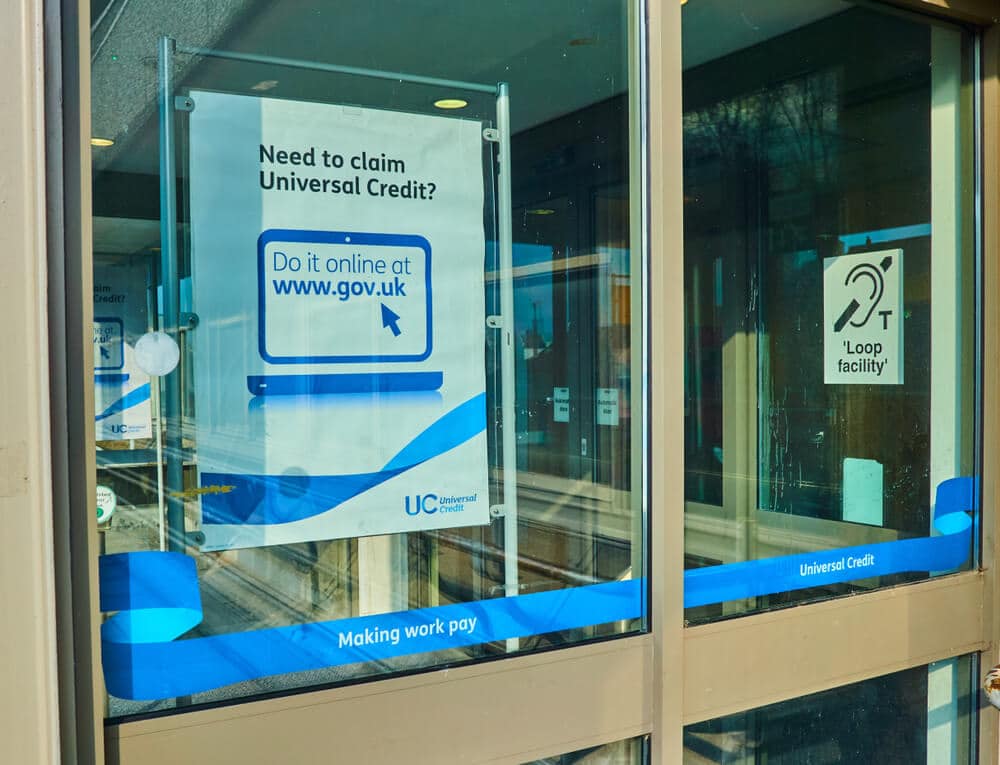The UK government has recently shook up the traditional benefits system and replaced the following benefits with Universal Credit: Jobseeker’s Allowance, Housing Benefit, Income Support, income-related Employment and Support Allowance, Working Tax Credit, and Child Tax Credit.
With millions of former older-style claimants expected to be transferred in the next few years and it impossible to switch back, people are questioning whether their finances will be better or worse off when their monthly payments are replaced with Universal Credit.
So, if you have been told that your benefit payments will be replaced with Universal Credit or are thinking about claiming Universal Credit for the first time, you might be wondering if it will it affect your credit score, especially if you have an otherwise good credit history.
In this blog, we’ll provide an answer to this question as well as some helpful information to help you improve your credit score for a healthier financial outlook.

Why choose YourDebtExpert?
- Write off unsecured debts over £5,000
- Stop interest and charges soaring
- Reduced payments from £85 per month
Does Universal Credit affect your credit score?
In a word, no.
Because your credit file only lists information about your borrowing history, credit history, and whether your debts were paid on time and in full, there is no reason for details of your income or benefit payments to be included.
It can, however, affect your finances in other ways, such as your ability to get a mortgage, loan, or credit card. This is because the majority of people that claim Universal Credit are typically on a low income due to disability or unemployment and might find it difficult to get a loan approved with a traditional lender.
What is Universal Credit?
Universal Credit is, put simply, a monthly (or twice monthly for some people in Scotland) payment designed to help people that are on a low income or unemployed with their living costs.
You will, however, only be approved to receive Universal Credit if you meet the eligibility criteria (live in the UK, are over the age of 18, are under the State Pension age, have less than £16,000 in money, savings, and investments). Your income, your partner’s income, and any other income you receive as a household will also be taken into account.
The Department for Work and Pensions (DWP) will assess your finances to decide how much Universal Credit you are entitled to with your first Universal Credit payment based on your financial circumstances during the first month of your claim.
If you currently claim any of the older-style legacy benefits, such as Housing Benefit or Child Tax Credit, you will be automatically transferred to Universal Credit with the current guidance stating that everyone will be moved over before 2024.
If you have made a Universal Credit claim but are worried your finances won’t stretch until you receive your first payment, however, you might also be able to get an advance. The maximum amount you can claim as an advance is equal to your first month’s payment and must be repaid from future Universal Credit payments.
What is your credit score?
Your credit score (also known as your credit rating) is a measure of your creditworthiness and, essentially, indicates how likely you are to make your monthly repayments on time and in full.
It takes a number of factors into account, such as your credit history, borrowing history, number of open accounts, total debt, and current financial circumstances, to generate a score that typically ranges between 300 and 850.
The higher your credit score is, the higher your chances are of being approved for a mortgage, loan, or credit card with 300-579 considered poor, 580-669 fair, 670-739 good, 740-799 very good, and 800-850 excellent.
What is your credit report?
Your credit report (also known as your credit file) is a detailed summary of your current credit situation and credit history. This includes personal information, lines of credit, and public records.
In the UK, it is held by the main credit reference agencies (Experian, Equifax, and TransUnion) and lets banks and lenders know whether you have had debt problems in the past and how successfully you have handled them.

How we helped Paige
It was literally the best decision of my life, and it has actually changed my life, cheesy as that sounds, it has changed my life.
Paige , IVA Customer
Will Universal Credit appear on your credit report?
Your credit report doesn’t include any information about your income sources. Because of this, there will be no evidence that you are claiming Universal Credit (or any other benefit payments) on your credit report.
So, if a lender was to access your credit report to assess your creditworthiness for a mortgage, loan or credit card, it would not be immediately apparent that you were struggling financially or receiving Universal Credit.
This means that, when you start claiming Universal Credit, it should make no difference to your credit report and have no impact on your credit rating at any point while you are still receiving a monthly Universal Credit payment.
Some lenders might, however, ask you to provide proof of income before they make a decision to approve or decline your application and can change their mind if they are worried you might default. This is when you stop making payments and, therefore, fail to stick to the agreed terms of your arrangement.
Can you get a mortgage on Universal Credit?
Yes, under the right circumstances it is possible to get a mortgage whilst you are claiming Universal Credit.
This depends on your total assets in addition to your benefit payments and the mortgage lender you choose with some lenders unlikely to accept your benefit payments as your total source of income and others only likely to accept a capped percentage.
To find out if your current financial circumstances make you eligible for a mortgage, contact a mortgage broker. They can provide helpful advice and guidance, put you in contact with lenders likely to accept your application, and even negotiate prices on your behalf.
If you already have a mortgage and have made a Universal Credit claim, your monthly Universal Credit payments might also include Support for Mortgage Interest (SMI). This will be calculated based on the interest rate applied to your mortgage and will be withdrawn when you or your partner receives earned income.
Does Universal Credit affect your loan or credit card application?
When you make a loan or credit card application, lenders will check your credit score to determine your creditworthiness.
Because Universal Credit doesn’t appear on your credit report and lenders are only interested in whether you have a good borrowing history and if you can comfortably afford your monthly repayments (including interest), it shouldn’t affect your chances of being approved for a loan or credit card.
It is, however, usually recommended to get pre-approved for payday loans and credit cards before you make a Universal Credit claim. This can prevent lenders from having to perform a hard credit check which will be recorded on your credit report.
What can affect your credit score?
There are several things that can affect your credit score. These are just some of the factors that lenders will look at when deciding whether to approve or decline your application:
-
Types of credit
-
New credit
-
Credit history
-
Payment history
-
Amounts owed
How can I improve my credit score?
Whether you have a good credit history or have a history of debt problems, there are steps you can take to improve your credit score.
The best way to improve your credit score is to consistently make your monthly repayments in full and on time. This can prove to lenders that you’re a reliable borrower and are unlikely to default.
Another less-known way to improve your credit score is to register on the electoral roll at your current place of residence. This can make it easier and quicker for lenders to confirm your address.





